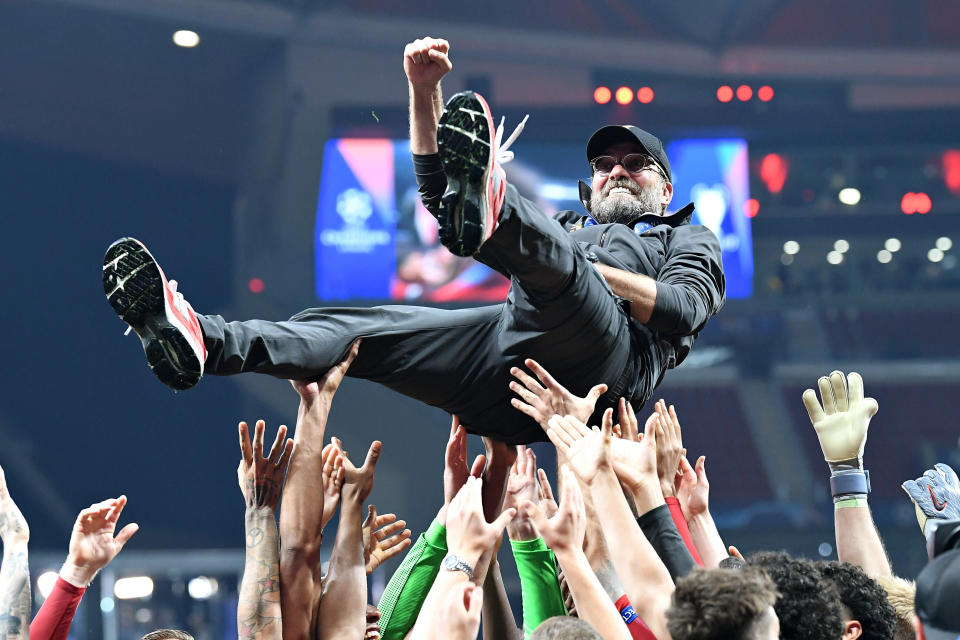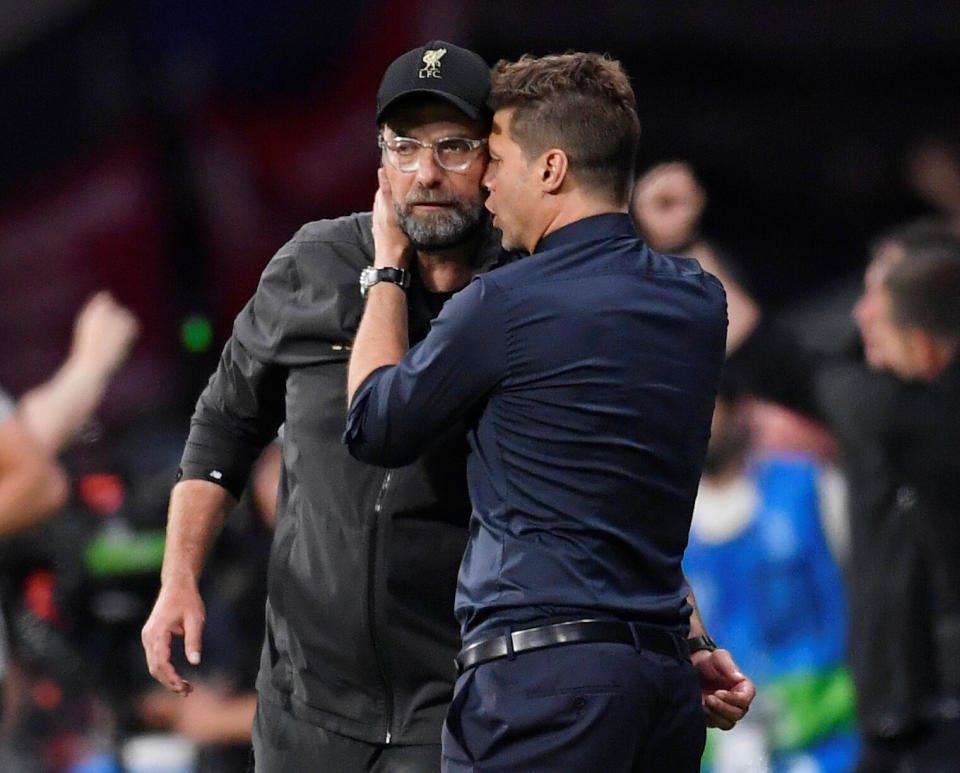A drab Champions League final weirdly vindicated Liverpool manager Jurgen Klopp

Legacy is a funny thing. Of all of Jurgen Klopp’s resplendent games as a manager, for this one to cement his status is deeply incongruous.
Because if this was the Champions League season of the epic upsets, the year of late drama so frequent that it became almost routine, it was fittingly unexpected that two of the most aesthetically pleasing soccer teams in Europe should deliver a dour, mirthless final that featured only one goal during the run of play and few shots on target.
After three weeks of hype and buildup, Liverpool and Tottenham Hotspur played the most lamentable Champions League final in recent memory. But Liverpool scored very early and very late to beat Spurs 2-0 and claim the sixth European championship in the club’s history.
Only Liverpool fans would have enjoyed these two bumbling hours of soccer. Or the last bit of it, anyway. Because the game was hardly an advertisement for, well, anything, or anyone.
Perhaps these two sides were too familiar, too aware of how to negate the other’s strengths, leaving us with a regressive festival of errors.
Or maybe the early penalty, awarded to Liverpool after just 23 seconds when Sadio Mane whacked a ball into Moussa Sissoko’s dangling arm and converted by Mohamed Salah, just ruined everything, allowing the Reds to slowly sap the life from the game.
Maybe Spurs’ inability to ratchet up any real attacking pressure until the final 10 minutes, with star striker Harry Kane clearly not sharp after a long injury and semifinal hero Lucas Moura benched, offered insufficient counterweight to Liverpool’s vaunted defense.
Maybe it was the mid-80s heat in Madrid, unusual conditions for English teams.
Maybe it was the three weeks off between the final day of the Premier League, which comes sooner than most other European leagues, and this game of games. That’s an eternity of time to kill in a soccer season regularly packing in two games a week, if not three.
Spurs manager Mauricio Pochettino had his team breaking arrows against their throats, walking over hot coals and doing “body language games” as the Argentine tried to channel the right “energies” and compared himself to Che Guevara in interviews. Liverpool took a few days off and then went to a training camp on the Mediterranean in the south of Spain.

You might argue that neither approach really worked, as both teams performed well below their high standards in a hoppy, skippy, bouncy, sloppy game. Lots of balls were overhit, underhit or entirely off target.
All the same, Liverpool avenged its ugly, error-strewn 3-1 loss to Real Madrid in last year’s final, locking it up with Divock Origi’s 87th-minute clincher.
This game should have been a victory of coaching and process. It was a matchup between two managers, Klopp and Pochettino, who actually work to improve players day to day, instituting systems and crafting recognizable playing styles, rather than endlessly cycling in new players until the mix just happens to work.
Remarkably, Pochettino and Klopp are the third- and fourth-longest tenured managers in the Premier League, respectively, and the longest who didn’t join their teams before gaining promotion to the top tier, like Bournemouth’s Eddie Howe and Burnley’s Sean Dyche. Their relative longevity – Pochettino just hit his fifth anniversary in North London, Klopp took over the Reds in Oct. 2015 – is a testament to their craftiness and inventiveness at the moneyed top-end of the club game.
Still, their big showcase of all they’ve built was a dud.
Which makes it profoundly ironic that this is the game that, to some, will vindicate Klopp’s management. The charismatic German had, until now, lost six of the seven finals he’d contested during his coaching career. He’d won just one of three German cup finals with Borussia Dortmund and lost the 2013 Champions League final to Bayern Munich. With Liverpool, he’d lost all three previous finals – the 2016 League Cup and Europa league, and last year’s aforementioned Champions League final.
Now he’s claimed the biggest prize in club soccer. In one of the worst games his soaring Liverpool team has played during his time at the club. Bizarrely, that capped and crowned a transcendent season in which his Reds set a club-record of 97 Premier League points, losing just once but coming up short to Manchester City.
To those ascribing to the school of thought that you can only be among the greatest if you’ve won the biggest prizes, Klopp cemented his legacy on Saturday. But this ignores that winning the Bundesliga twice and reaching the Champions League final with Dortmund was an astounding achievement. That reaching two finals in his first season on Merseyside, in spite of not taking over until October, was even unlikelier.
And that Jurgen Klopp was one of the greatest minds in the sport long before he finally won that big game, no matter how ugly the fashion in which it ultimately happened.
Leander Schaerlaeckens is a Yahoo Sports soccer columnist and a sports communication lecturer at Marist College. Follow him on Twitter @LeanderAlphabet.
More from Yahoo Sports:

